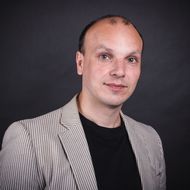Russian Politics and International Affairs
3 ECTS
OVERVIEW
The track aims at covering the key aspects of Russian Politics and International Affairs. Together with three experienced and well-published instructors you will be able to retrieve, collect, process and analyse information relevant for your research proposal in the field of Russian politics and IR. During the first week students will study the texts of key scholars and public intellectuals, analysing Russia’s role in modern world politics in relation to what shapes the country’s identity, and to how Russian ruling elites construct relationship with both the West and China. We will examine key narratives of Russia’s ‘heroes’, ‘triumphs’, and ‘historical victims’ (e.q. WWII), as well as the principal symbols of geopolitical space (for example, the Crimean Peninsula). Your work during the second week will allow you to get insights into the complex relations between political and economic transition in Russia and other post-communist countries in the last 40 years. You will learn, for example, how privatization, corruption, the nature of state-business links and the availability of natural resources affects economic performance of contemporary Russia. Final, third week will enable you to discuss in class problems of Russia’s diplomacy and international security strategy in Central Asia, including Russia’s soft power and current political, social and economic development of BRICS countries (Brazil, Russia, India, China and South Africa).
ELIGIBILITY
The track welcomes participants from various backgrounds (Political Science, Sociology, Russian Studies, International Relations, etc.), including those BA, MA and Ph.D. students who are currently studying another subject but who want to broaden their knowledge in this field. Applicants have to meet a standard entry requirement of being 18 years old or over by the time the Research School commences and being able to study in English (language certificates are not required).
MOTIVATION LETTER
Please prepare a motivation letter (up to 1,000 words) addressing the following topics:
1. Three most important things about yourself.
2. What is your motivation to join this programme?
3. What is the (preliminary) research problem you are interested to study?
4. What is the (preliminary) research question you can formulate for drafting your future research proposal?
5. What are your expectations from our programme?
ACADEMIC TEAM
Academic Coordinator: Sergei Akopov
Lecturers: Sergei Akopov, Vera Ageeva, Andrey N. Scherbak

Sergei Akopov
Professor, St. Petersburg School of Social Sciences and Area Studies, Department of Political Science and International Affairs

Vera Ageeva
Deputy Head, Associate Professor, St. Petersburg School of Social Sciences and Area Studies, Department of Political Science and International Affairs

Andrey N. Scherbak
Head, Associate Professor, St. Petersburg School of Social Sciences and Area Studies, Department of Political Science and International Affairs
STRUCTURE
Three blocks taught by three instructors (see above) will cover 3 weeks of the course. Within his week of teaching Dr. Sergei Akopov will discuss topics of specificity of Russia’s parliamentary and federal system of governance and its managements of ethno-national diversity; issues of Russia’s ‘Friends’ and ‘Enemies’ in its Foreign Rhetoric; question to what extent Russia is a European political entity; ‘myths’ of Russian Foreign Policy and its (re)construction by usage of collective memory about Russia’s past etc.
Dr. Andrey Scherbak will cover issues of the Gorbachev’s reforms and his failure to reform command economy; market transition in Russia; privatization in Russia; The ‘resource curse in Russia’; Russia’s contemporary Wealth and Inequality; Russia’s corruption, (ethnic) violence and contemporary institutions (including fiscal system; Russia’s Authoritarian Modernization and perspectives of Russia’s Economy after the 2014 Crisis.
Dr. Vera Ageeva will proceed with a concluding week by analysing ‘soft’ and ‘smart’ ‘powers in Russia’s Foreign Policy and in its relation with Russia’s diaspora abroad, specifically discussing phenomena of ‘Russian World’ and Global Russia’s in post-Soviet space. She will also dedicate special lectures to issues of Russia’s membership in international organizations and international security, with focus on cases like Russian and Chinese grand strategies in Central Asia, as well as the analysis digital and information aspects of Russia’s contested sovereignty.
Module 1
Russia’s Identity in world politics: introduction to the course (Dr. Sergei Akopov, 12 hours)
Module 2
The Political Economy of Postcommunist Transformation (Dr. Andrey Scherbak, 12 hours)
Module 3
Russian foreign policy and security (Dr. Vera Ageeva, 12 hours)
Please note
Сhanges to the course syllabus may be made over the coming months before exact set of topics are finalised.
LEARNING OUTCOMES
Upon course completion students should be able to:
1. Identify key points of Russian ‘political identity’, key political narratives and metaphors of its collective memory, and principal perceptions of Russian geopolitical space;
2. Critically interpret the main events and trends in post-communist transition;
3. Asses the role of Russian in international organisation and deliver insight in Russia’s international security strategy, including its ‘soft’ and ‘smart’ powers;
4. Come up with a solid research proposal in the field of Russian domestic and foreign politics.
FINAL RESEARCH PROJECT
The final grade consists of the accumulative mark for in class activity (50 %) and the final exam mark (50 %).
The accumulative mark (50 %) for in class activity suggests that students will be required to attend most of the seminars and actively participate in them. To facilitate seminar discussions students are expected to read the assigned texts for each seminar. To communicate their ideas to others, students may be asked to present their summaries on the seminar discussion.
The final examination mark (50 %) is conducted in a form of oral presentation of student’s research proposal. The course will finish with Research proposal presentations - a collection of materials arranged in coherence with one of the topics from the course or a chosen topic of future research paper. Students shall be ready to present their research proposals orally during the final exam (PowerPoint presentation). The latter suggests a clear presentation of the following:
1. Research problem
2. Research question
3. Research strategy and design
4. Methodology of proposed research and expected research outcomes
ASSESSMENT
In order to sit the final exam students have to attend no less than 70 % of the online classes.
The final grade will be comprised of:
- Participation and in class discussion (50%)
- Final research project presentation (50%)
Final grade is calculated as follows:
Mfinal =·0,5·Оparticipation+ 0,5·ОResearch project presentation
Assessment is carried out according to the standard 10-point scale.
Assessment Compliance Scale
READINGS AND MATERIALS
Status and Ressentiment: Historical Backgrounds of the Russian Discursive Identity Construction, Communist and Post-Communist Studies. Vol. 47. No. 4. P. 291-303;
Tsygankov A. (2015) Vladimir Putin's last stand: the sources of Russia's Ukraine policy, Post-Soviet Affairs, 31:4, 279-303;
Russia’s Identity in International Relations. Images, Perceptions, Misperceptions. Ed by R.Taras, L.: Routledge. 2013, – P.110-131.
Concept of the Foreign Policy of the Russian Federation, December 1, 2016.
Dzarasov R. The conundrum of Russian capitalism: The post-Soviet economy in the world system. – London : Pluto Press, 2014.
Gustafson T. Capitalism Russian-Style. – Cambridge University Press, 1999.
Robinson N. (ed.). The political economy of Russia. – Rowman & Littlefield, 2012.
Bonakele, T., Fox, E. M., & Mncube, L. (2017). Competition Policy for the New Era : Insights From the BRICS Countries (Vol. First edition). Oxford: OUP Oxford. Retrieved from http://search.ebscohost.com/login.aspx?direct=true&site=eds-live&db=edsebk&AN=1711117
Roberts, C. A., Armijo, L. E., & Katada, S. N. (2018). The BRICS and Collective Financial Statecraft. New York, NY: Oxford University Press. Retrieved from http://search.ebscohost.com/login.aspx?direct=true&site=eds-live&db=edsebk&AN=1607829
TRANSCRIPTS, CERTIFICATES AND CREDIT TRANSFER
Those participants who complete the course and sit the final exam will receive a transcript of records and a certificate of attendance. Those who will not be able to sit the final exam, will be provided with a certificate of audition only.
The credits earned upon completion of the course can be transferred to your home university/institution. Please verify with your home university/institution that the credits you get from HSE University can be applied to your curriculum (programme).